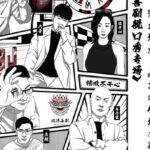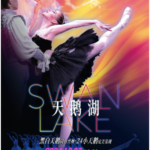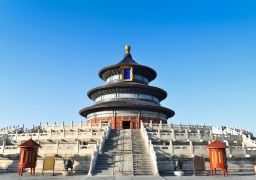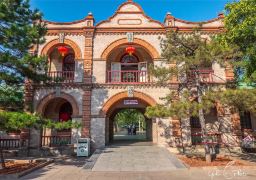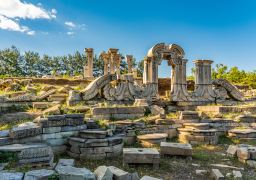This play is adapted from the same-titled drama by Lao She. In the era when the Qing Dynasty was about to perish, the Yutai Teahouse in Beijing still presented a scene of ‘prosperity’: people raising birds in cages, fortune-telling, selling antique jade wares, playing with katydids and crickets. The young and shrewd shopkeeper Wang Lifa takes care of all sides and is adept at getting along with everyone. However, behind this ‘prosperity’ lies the suffocating decline of the entire society: foreign goods flooding the market, rural bankruptcy, eunuchs buying wives, and patriots being arrested… In the early years of the Republic of China, the continuous civil wars made the people suffer deeply. All the large teahouses in Beijing were closed. Only shopkeeper Wang improved his business by turning the backyard of the teahouse into an apartment rented to college students and putting a gramophone in the main hall. Nevertheless, the social unrest still affected the teahouse: refugees blocked the door, soldiers snatched the shopkeeper’s money, and detectives came to extort from time to time. Another thirty years later, shopkeeper Wang, who is in his declining years, is still desperately supporting the teahouse. Japan has surrendered, but the Kuomintang and U.S. imperialism have plunged the people into the disaster of civil war again. Jeeps are rampaging, patriotic people are brutally suppressed, and rogue spies want to seize the teahouse that shopkeeper Wang has painstakingly managed all his life. Wang Lifa is in despair. At this time, two friends he made fifty years ago happen to come. One is Chang Siye, a gentleman who was once arrested by the Qing court, and the other is Qin Erye, who has been engaged in industry for half his life but ended up in complete failure. The three old people scatter the paper money they picked up, crying and laughing mournfully. In the end, only Wang Lifa is left… Original work: Lao She Producers: Ling Jinyu, Dai Bing Supervisors: Cui Di Producers: Peng Yanliang Adaptation: Wang Xinji, Gu Wei Director: Gu Wei Composer/Artistic Advisor: Dai Yisheng Orchestration: Hu Hailin, Dai Yisheng Stage Design: Cen Baoshan, Huang Shaofei Artistic Guidance: Zhang Shaorong Lighting Design: Zhou Zhengping, Liu He Costume Design: Jing Chunchun, Wang Yan Makeup Design: Wang Huiling, Wu Xia Sound Effect Design: Liu Zhenping, Zhang Fuyue Sound Design: Zhang Fuyue Prop Design: Ding Xiangning, Man Hengshan Conductor: Su Jie, Sheng Nianhua Assistant Directors: Wang Yi, Chi Cheng Cast: Wang Lifa: Li Yongde, Hu You Tang Tiezui: Zhao Haobo Chang Siye: Peng Yanliang, Zhang Jing Song Erye: Hu You, Li Yongde Er Dezi: Zhao Hongchun Ma Wuye: Huo Hao Song Enzi: Liu Pengkun Wu Xiangzi: Jin Long Xiao Mingzhu: Zhou Lingyun Da Shayan: Chen Zhifei Liu Mazi: Shan Bin Kang Liu: Wang Peng Li San: Wu Yukun Qin Zhongyi: Li Xiangkui Pang Taijian: Bao Mingming Xiao Niu: Liu Wei Kang Shunzi: Wang Yu, Chen Hongjing Wang Shufen: Yan Jin, Cui Wan Patrolman: Tong Mingda, Wang Ziwei Kang Dali: Yu Zhicheng Lao Lin: Zhai Yalong Lao Chen: Zhang Jing, Peng Yanliang Da Ling: Ni Lei Wang Dashuan: Ma Binzhou Wang Xiaohua: Zhu Tao Zhou Xiuhua: Wang Lu Xiao Dingbao: Qin Weili, Cao Jingge Xiao Liu Mazi: Shan Bin Xiao Tang Tiezui: Zhao Haobo Pang Sisi Nainai: Guo Zengrui, Song Jie Chunmei: Teng Yue Xiao Er Dezi: Zhao Hongchun Xiao Song Enzi: Liu Yong, Liu Pengkun Xiao Wu Xiangzi: Jin Long Tea customers/clerks/soldiers/bullies/refugees/newsboys: Actors of Beijing Quju Opera Troupe. *The above content (including performance time, cast, program and ticket prices, etc.) may change. The final performance shall prevail and is for reference only.
Performance Group: Beijing Quju Troupe
Beijing Quju originated in the early 1950s after the founding of the People’s Republic of China. It is an emerging theatrical genre created and performed by a generation of quyi masters represented by Wei XiKui. In 1952, it was named ‘Beijing Quju’ by Mr. Lao She. Beijing Quju is born from the millennia-old cultural city of Beijing and is truly a local drama unique to Beijing. Its music and singing are developed based on the basic musical material of the single-string tune, with dialogue primarily in Mandarin, highlighting the characteristics of Beijing language and featuring a rich Beijing flavor. The performance style of Beijing Quju is free from the conventional formalities of traditional opera, adhering to a realistic performance style that is close to life. Beijing Quju is particularly adept at interpreting themes from the Qing Dynasty and modern Beijing, while also appropriately performing other themes. As the only local opera of Beijing, Beijing Quju has a history of 60 years since its naming in 1952 and has created and performed nearly 200 plays. In recent years, the plays created and performed have won numerous awards, including: ‘Yan Hu’ won the Fifth ‘Five-One Project’ Award from the Central Propaganda Department, the Sixth ‘Wenhua New Drama’ Award from the Ministry of Culture, and the Gold Award at the Third National Ethnic Minority Drama Festival; ‘Long Xu Gou’ won the Eighth ‘Wenhua New Drama’ Award from the Ministry of Culture and the ‘Ten-One Project’ Award from the Beijing Municipal Propaganda Department; ‘Zheng Hong Qi Xia’ won the ‘National Stage Art Excellence Project Outstanding Play’ nomination, the Fifth Beijing Literature and Art Award, and the Gold Award at the Fourth National Ethnic Minority Literature and Art Performance; ‘Singing’ won the Seventh Beijing Literature and Art Award; ‘Yellow Leaves Red Building’ was shortlisted for the 2015 National Art Fund, won the Excellent Play Award at the Fourth National Ethnic Minority Drama Festival, and was selected as a key cultural project in the second batch of Beijing’s 2015 cultural projects; ‘Flower Falls and Flowers Bloom Again’ was selected as a key cultural project in Beijing for 2016, shortlisted for the 2016 Ministry of Culture Art Division Opera Script Incubation Plan in March 2017; ‘New Stories by the Arrow Shaft River: The Legend of Shi Bu Xian’ won the ’15th China Population Cultural Award Organizing Committee Special Award’ in 2017; ‘Flower Falls and Flowers Bloom Again’ was shortlisted for the 2017 Beijing Art Fund. The troupe has performed ‘Yang Naiwu and Xiao Baicai’, ‘Yan Hu’, ‘Long Xu Gou’, ‘Teahouse’, ‘Four Generations Under One Roof’, ‘Zheng Hong Qi Xia’, and ‘Rickshaw Boy’ in Taiwan, China three times in 1997, 2000, and 2013. In May 2017, the play ‘Yan Hu’ was performed in Berlin, Germany; in June 2017, the play ‘Yellow Leaves Red Building’ was performed in Moscow and St. Petersburg, Russia. In 2012, the Beijing Quju Troupe was restructured as an enterprise, and in November 2015, it was transferred to Beijing Performing Arts Group.In 1996, 1998, and 2008, it was rated as a ‘Capital Civilized Unit’ by the Capital Spiritual Civilization Construction Committee for three times. In 2012, in order to actively adapt to the requirements of cultural system reform, the Beijing Quyi Troupe was officially transformed into a wholly state-owned enterprise integrating literary and artistic creation, performance, and literary and artistic training. At the end of 2013, it was identified by the Ministry of Culture as a ‘key local opera creation and performance troupe’. In 2014, it was selected as an advanced collective of the national cultural system by the Ministry of Culture and the Ministry of Human Resources and Social Security. Beijing Quju and Beijing Quyi Troupe are a single opera genre and a single troupe among national art varieties and art performance groups. The full text is open from December 21st to December 22nd, Saturday to Sunday. The performance time and duration are subject to the site.
